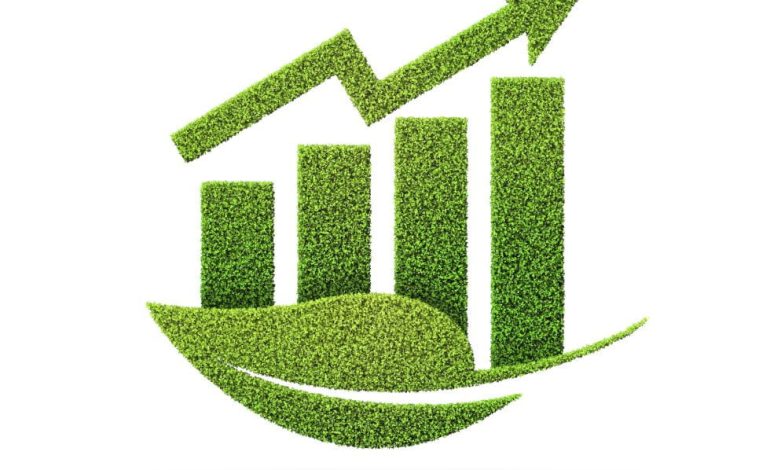Being conscious about our consumption is becoming more and more crucial as the effects of climate change become more and more visible, and customers are now pressing brands to heed their call.
According to one study, 89% of consumers have changed their shopping habits to favor purchasing sustainable goods, with over 30% claiming a major change. The generation that has adopted this trend the most reports that it is important to think about sustainability when making purchases.
It is obvious that offering eco-friendly items is a potentially successful business strategy in addition to being a feel-good one. Discover dozens more product concepts up ahead, from treats derived from food waste to reusable bottles.
Eco-friendly items adhere to tight guidelines on the environmental impact of their manufacturing, packing, delivery, use, and disposal. These goods frequently get certification from independent agencies that can vouch for their sustainability claims.
Both the terms “eco-friendly” and “sustainable” refer to a brand or product’s low impact on people, animals, and the environment. One or more of the following characteristics will be present in these goods or brands:
- Ethically manufactured
- Fair trade or fair wages and treatment of workers
- Low environmental impact through waste reduction or use of sustainable materials
- Investment in carbon removal projects
- Low-impact shipping materials and methods
- Recycled or reclaimed materials used
- Zero-waste alternative to conventional products
- B Corp certification or other sustainable certifications
- Natural, organic, plant-based ingredients
- Donation of proceeds to charities and causes
Whether you’re looking to sell sustainable products for home office design, ethical loungewear, or clean comfort foods, we’ve got you covered. Read on to discover tips to get started as an eco-entrepreneur—and protect the planet, one refillable water bottle at a time.
Think of a product. Any product. Chances are, no matter what product you thought of, there is an eco-friendly version available—somewhere. According to a study by Genomatica, many consumers are interested in buying sustainable products. However, nearly half of them say that they don’t know where to find sustainable brands.
Needless to say, there’s a big opportunity for your brand to make eco-friendly alternatives more accessible to consumers. Below are some high-demand, eco-friendly products and potential online business ideas to get your creative juices flowing.
1. Earth-friendly or ethically made household goods
When it comes to selling earth-friendly and ethical household items, the possibilities are endless. You could sell reusable kitchen items—such as water bottles, coffee cups, silicone straws, food wraps, napkins, and paper towels—that use all-natural or biodegradable materials like bamboo or hemp.
Or, offer household supplies like soaps, detergents, and surface cleaners that are made from non-toxic, earth-friendly materials. Even utilitarian and decorative household goods—like furniture, rugs, linens, and throws—can be sourced more sustainably.
As an example, textile shop Kaekoo sells beautiful, handcrafted throw pillows and home goods from around the globe. Each item is ethically created and has a story of its own.
2. Sustainable or ethical fashion
The fashion industry has long been scrutinized for its carbon footprint and has responded with a slew of innovative products (swimsuits made of recycled materials, vegan yoga mats, etc.). Unfortunately, the results of these innovations are decidedly uneven—with the overall impact being almost negligible.
However, this provides a unique opportunity for your business to set itself apart from the competition by being selective of the suppliers and manufacturers you partner with. Find partners who use sustainable materials like organic cotton, industrial hemp, bamboo, or wool from humanely-treated animals.
Another idea: tap a print-on-demand (POD) service like Modalyst, which offers a large selection of customizable eco-friendly products and only prints items when an order comes in.
Alternatively, you could consider reselling gently used, quality, or vintage clothing like Henny Penny Vintage does. By pledging to only sell pre-loved items, Henny Penny aims to “[give] fast fashion the middle finger.”
3. Recycled or upcycled products
Clever artisans around the world are finding ways to reuse and upcycle discarded items, turning them into something beautiful. For example, Handlebend’s founders started its business by making hand-crafted mugs for friends and family out of copper scraps. The mugs were such a hit that Handlebend soon blossomed into a successful D2C eCommerce brand.
Read Also: How do You Source Sustainable Products?
As another example, Alyssa, the self-taught jewelry crafter behind The Antlered Doe, now runs a sustainable eCommerce business making jewelry from naturally shed antlers.
One-of-a-kind treasures like these can help separate your business from the competition. With the right product positioning, you can build customer loyalty and drive consumer demand for unconventionally produced products.
4. Natural, organic, and ethical personal care products
Consumers are more conscious of what they put on their skin and in their bodies these days, and many are looking for products made from natural ingredients that are safe and effective. Selling personal care products that are both natural and ethically made can align your business with the socially responsible movement.
You could sell a variety of natural, organic, and ethical personal care products like soaps, shampoos, conditioners, deodorants, and toothpaste. As shown in the example below, make sure to align your branding with your efforts, using bold copy (“just like nature intended”) and easy-to-find filters so that visitors don’t have to look far for relevant results.
5. Sustainably packaged consumer goods
With increased awareness of the impact that waste and resource depletion can have on our planet, consumers seek eco-friendly packaging alternatives. These include materials that are recycled, biodegradable, or reusable instead of traditional packaging, such as plastic or single-use paper.
For example, Mananalu, founded by actor Jason Momoa, presents purified water packaged in a recyclable and reusable aluminum bottle. For every bottle consumed, Mananalu promises to remove one plastic bottle from ocean-bound waste.
6. Renewable energy tech accessories and gear
Today’s devices are largely powered by electricity generated from finite and non-renewable fossil fuels, contributing to global warming and climate change.
As a small business, you could offer renewable energy products like personal water filters, solar radios, geothermal cookers, rechargeable batteries, and even portable solar chargers. Or, sell smart energy monitors that allow consumers to monitor their energy consumption and reduce their carbon footprint.
Flower Turbines is a great example of a company that brings together renewable energy technology and sustainability in an artistic way. The business has scaled down the concept of wind turbines for individual use in an eye-catching and colorful tulip-shaped design, which looks more like art than an alternative energy source.
7. Reusable storage solutions
Reusable storage options, such as glass containers with bamboo lids, food-grade silicone containers, and organic cotton or hemp shopping bags, provide sustainable alternatives to single-use, disposable packaging. By using chemical-free materials, reusable storage options promote a healthier lifestyle. Plus, they’re often more durable.
In addition, reusable storage solutions deliver a more environmentally responsible option for organizing personal items, as opposed to traditional storage products that ultimately contribute to landfills, take centuries to decompose and harm marine life if they wind up in oceans.
8. Earth-friendly pet products
It’s no secret that many pet lovers view their pets as part of the family, and it’s easy to understand why pet owners only want the best for their furry house members. In this vein, you could sell earth-friendly pet products that are non-toxic and use sustainable packaging made from biodegradable or recycled materials.
Earth-friendly alternatives to popular pet toys, bedding, litter, flea protection, and food could be another great addition, given that they’re frequently replenished (and can thereby generate consistent revenue). Diamond Dogs strives to reduce the impact plastic has on the environment by sourcing pet supplies that are eco-friendly, non-toxic, and sustainable from like-minded suppliers.
9. Eco-friendly gardening products
More than half of U.S. households participate in gardening activities, according to research by RubyHome, increasing the demand for eco-friendly gardening supplies. After all, natural, sustainable, and nontoxic materials are safer for both the gardener and the garden. Think: organic fertilizers, natural pesticides, compost bins, and rain barrels.
Garden tools made from recycled or biodegradable materials (like bamboo or wooden garden stakes, coconut coir pots, and cloth garden bags) could further enhance your catalog.
10. Sustainable and renewable fitness gear
Fitness gear—like yoga mats, gym bags, water bottles, resistance bands, and athletic clothing—made from eco-friendly materials—like recycled plastic, Lyocell/TENCEL (made from eucalyptus trees), organic cotton, and bamboo—can lower your carbon footprint. Not to mention that they can satiate expectations around both style and environmental responsibility.
For inspiration: Wholesaler Preloved Kilo sells gently used, vintage sportswear (alongside other types of clothing) in an effort to keep items out of landfills. It also aims to save consumers money with its unique pay-by-weight pricing model.
11. Eco-friendly toys and games
The demand for sustainable toys and games is rising across the globe and is predicted to increase 12.5% annually through 2030, according to Allied Market Research. This is thanks, in part, to social media influencers who are helping to drive interest in eco-friendly products.
Eco-friendly toys and games are available in materials like recycled plastic, sustainable wood (like bamboo), and organic cotton. Eco-friendly toys and games can include anything from dolls, action figures, construction sets, games, puzzles, sports toys, and more.
How to Select The Right Products to Sell
It takes more than just selecting your favorites from the list to choose the best eco-friendly products to sell. Instead, think about the effects your product choices will have on your branding and eCommerce business plan. Choose the eco-friendly products that best complement the overall brand, objectives, and target market of your company.
Things to think about:
- Environmental impact – Eco-friendly products can vary greatly in how they impact sustainability, energy efficiency, and carbon footprint. Consider which aspects are most important to your business and its initiatives, then hone in on products that meet your selected standards.
- Business alignment – Consider whether the product aligns with your business’s mission, values, branding, target audience, and marketing strategy. The more aligned the product is, the greater the potential for generating a positive return on your investment.
- Ethics – Sustainable or natural materials don’t guarantee ethical production practices (e.g. fair wages and working conditions, responsible materials sourcing, ethical treatment of animals, etc.). For example, you may decide to focus on offering cruelty-free cosmetics and household cleaners, while prioritizing sustainable materials for clothing.
- Sourcing – Eco-friendly products can be sourced directly from manufacturers, dropshippers, and local suppliers, or made in-house to reduce your carbon footprint.
- Market trends – Use consumer reports, trade publications, and tools like Google Trends to determine which eco-friendly products are in high demand within your industry.
- Packaging – Be mindful of packaging. Consumers may prefer products with eco-friendly packaging like paper, cardboard, plant materials, or biodegradable polymers. But as a business, you need to weigh the benefits versus the costs and choose the products and packaging options that are most feasible.
- Manufacturing and distribution costs – Consider the production and distribution costs of eco-friendly products compared to that of traditional products to determine feasibility, marketplace viability, and potential cost savings. Furthermore, avoid surprises by taking a proactive approach to understanding any logistical challenges you may need to anticipate or accommodate.
- Product certifications – When sourcing items, consider a product’s certifications (i.e. organic, sustainably sourced, chemical-free). Certifications can assist you in selecting products that meet a certain standard. Additionally, because they are often verified by a third-party authority, certifications can add credibility and an additional selling point for your business.
- Government incentives and regulations – As a seller or user of sustainable products and materials, you may qualify for government incentives including tax credits, rebates, and even marketing support through government-sponsored websites.
Eco-friendly items are not only a good business decision when you sell them online. Additionally, it can be lucrative and promote brand loyalty. Spend time carefully planning your product strategy, including market analysis and product research, to get the best outcomes.


